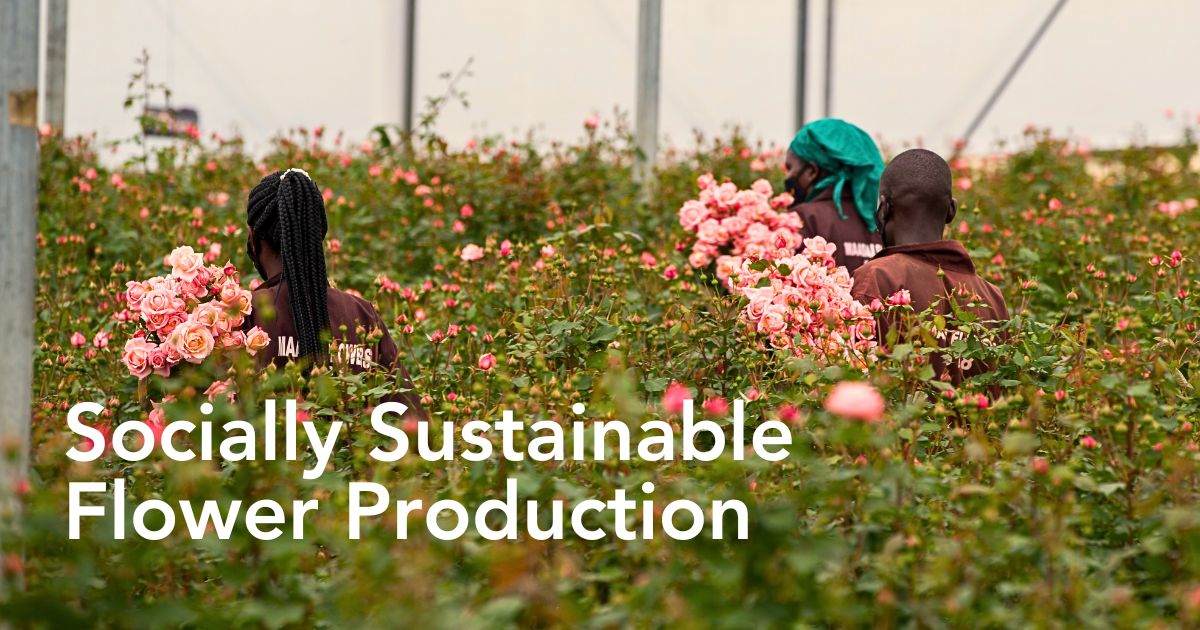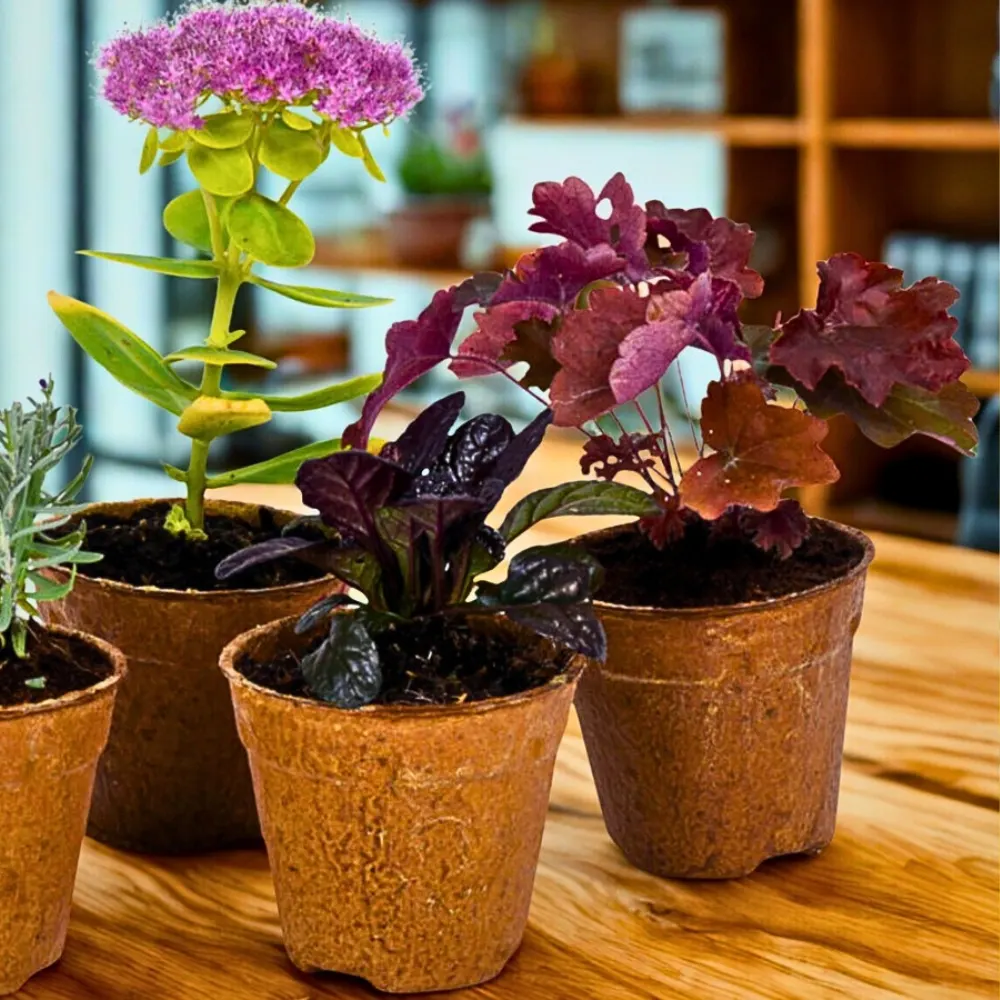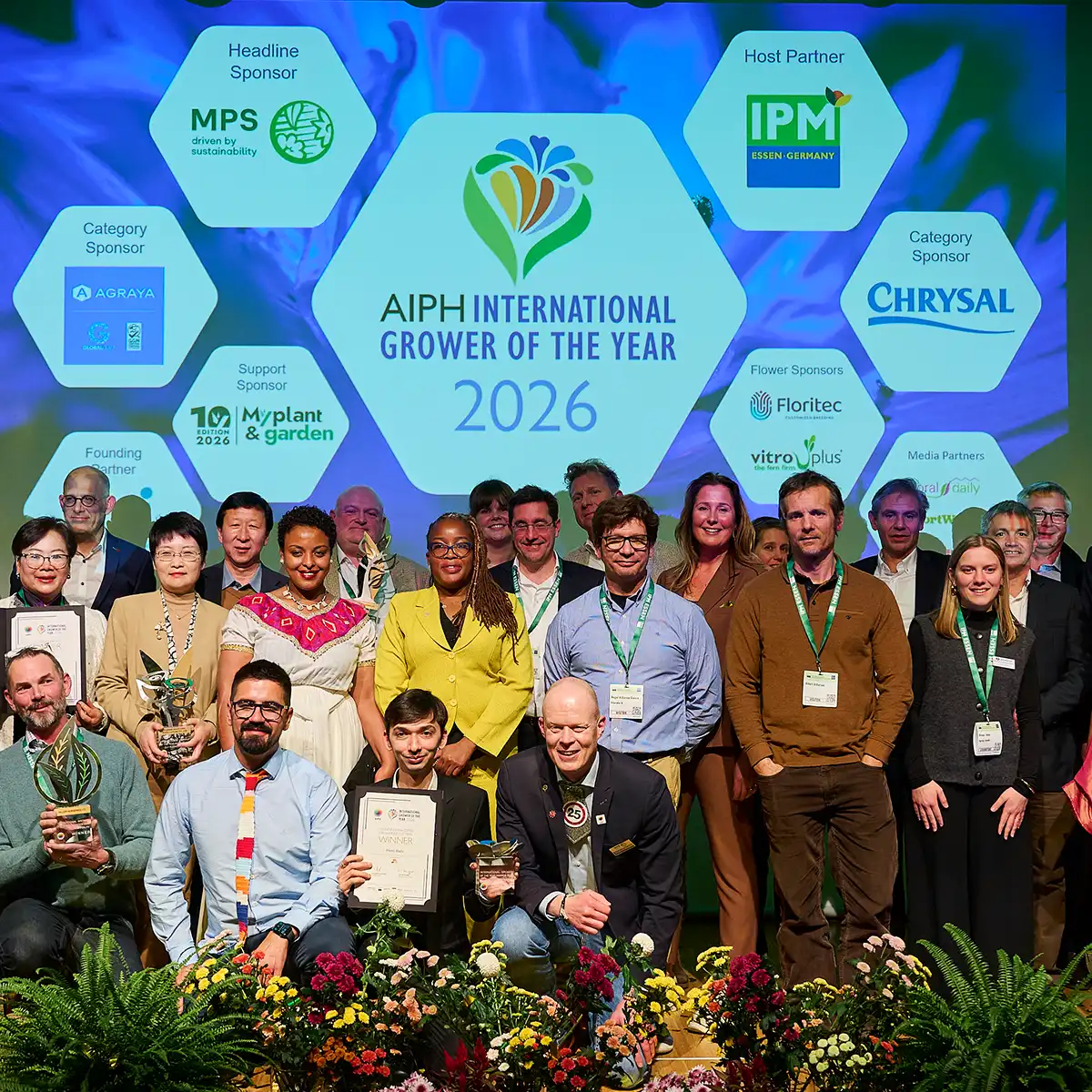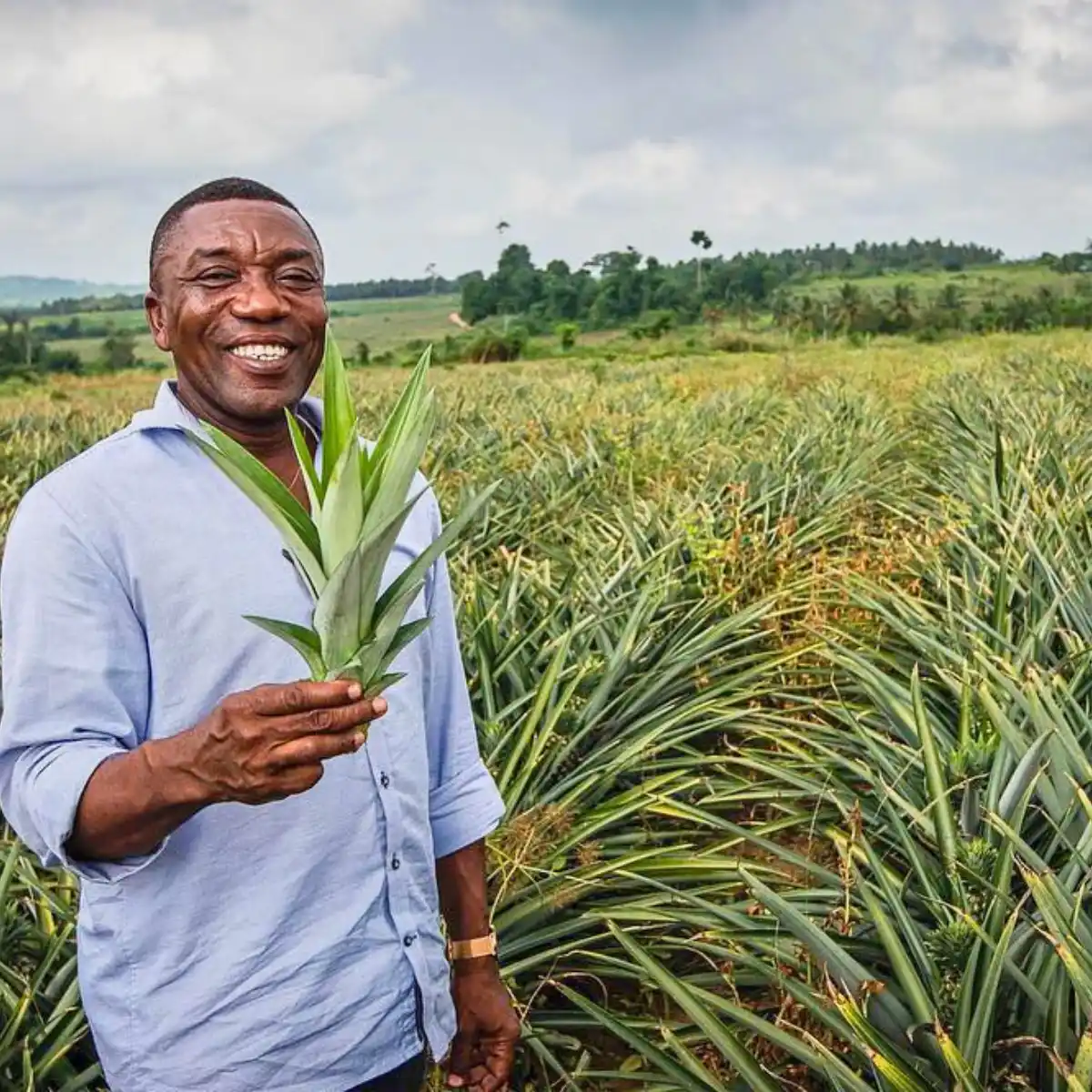The floriculture industry increasingly recognizes that true sustainability goes beyond environmental considerations. Behind that beauty of flowers and ornamentals lies a complex web of human labor—farm workers, harvesters, and packers—whose well-being is foundational to the sector’s sustainability. As consumer demand for ethically sourced flowers grows, the industry faces a pressing obligation: to prioritize employee welfare as a basis of sustainable practices.
Recent developments in sustainable floriculture practices highlight the crucial importance of employee welfare, not only as an ethical imperative but also as a fundamental component of a resilient and prospering floriculture industry. The well-being of employees in the flower sector takes into account fundamentals such as fair wages, safe working conditions, professional development opportunities, health benefits, and inclusive workplace cultures.
The Evolution of Social Sustainability in Floriculture
Sustainable floriculture is often framed through environmental metrics—water conservation, pesticide reduction, and carbon neutrality. However, true sustainability cannot exist without addressing the social pillar: the rights, health, and dignity of the workforce. Floriculture employs hundreds of thousands globally, especially in countries like Ecuador, Kenya, Ethiopia, and Colombia, where labor costs can be lower, but risks to workers are disproportionately high.
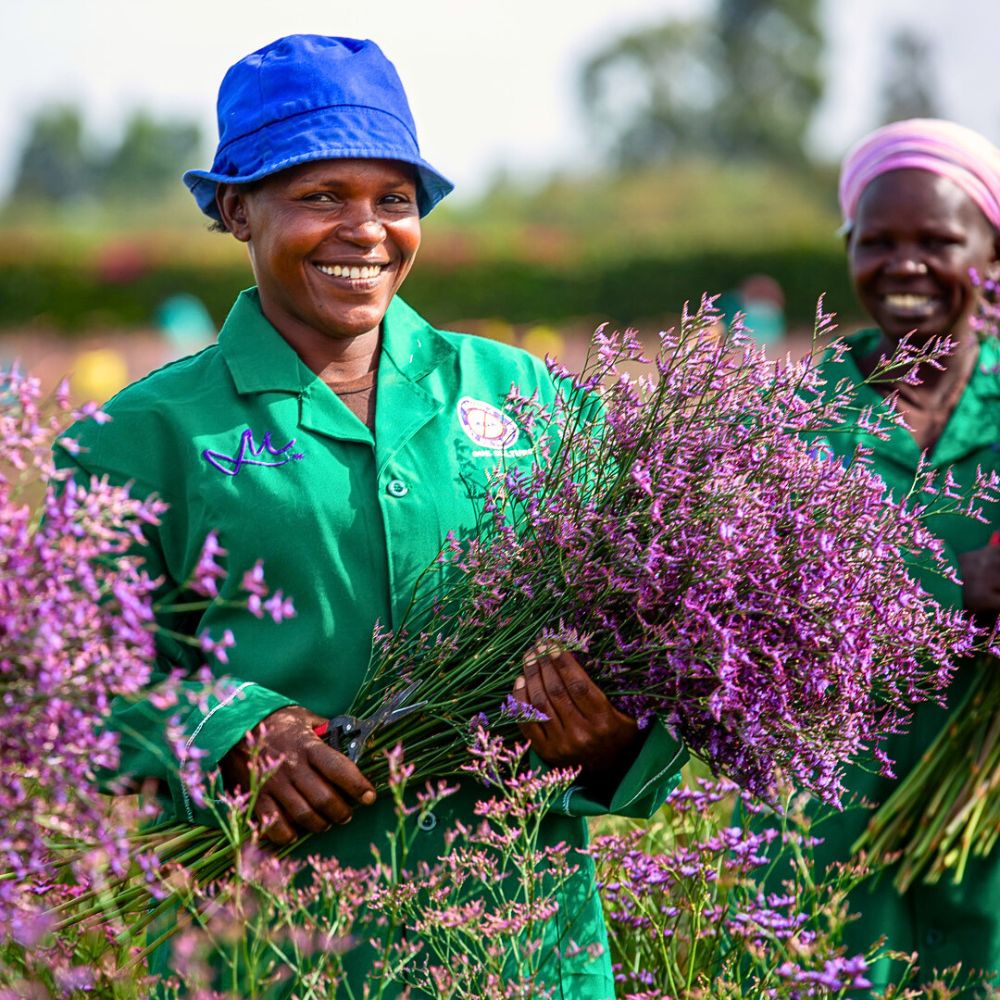
Historically, the industry has been plagued with claims of issues like exposure to toxic pesticides, inadequate protective gear, long working hours, and exploitative wages. Before certification programs, up to 68% of field workers were said to lack essential protective equipment. But that is hardly the case now. Thus, employee welfare in this context brings into account essentials like safe working conditions, access to healthcare, fair wages, gender equity and inclusivity, and opportunities for education and community development. These elements are not just moral requirements but also economic necessities.
A motivated, healthy workforce enhances productivity, while ethical practices improve market access and brand reputation in an era where 70% of consumers prefer sustainably sourced products. Essentially, alongside environmental and economic considerations in the floriculture industry, social sustainability is a crucial pillar. This explains why organizations throughout the sector are developing comprehensive frameworks to address different aspects of employee welfare, recognizing that a rounded approach yields the greatest benefits for both workers and the business.
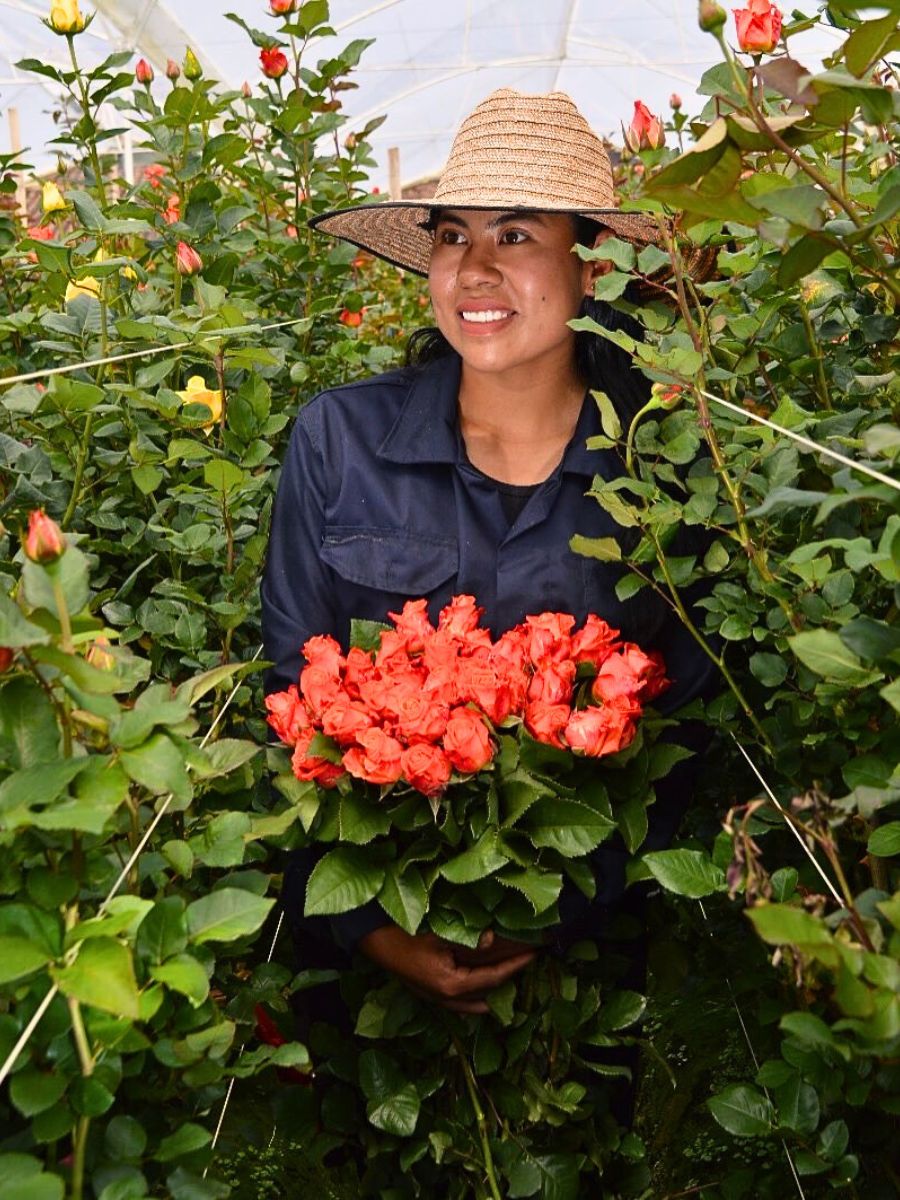
Institutions like the American Floral Endowment's Sustainabloom program exemplify this obligation through their recently released guides on social sustainability. Developed by researchers at NC State University, these guides address critical aspects of employee welfare, including ongoing education, health benefits, and diversity, equity, and inclusion (DEI). As Dr. Melinda Knuth from North Carolina State University explains, these resources aim to empower employers in creating a healthier, more engaged, and diverse workforce in the floriculture industry. This initiative acknowledges that sustainable floriculture must prioritize the people who make the industry possible.
The flower industry has faced significant challenges in recent years, including the impact of the COVID-19 pandemic on sales and ongoing environmental threats such as extreme weather, crop diseases, and pests. As such, these challenges highlight the importance of supporting workers through comprehensive welfare programs that enhance resilience at both individual and organizational levels.
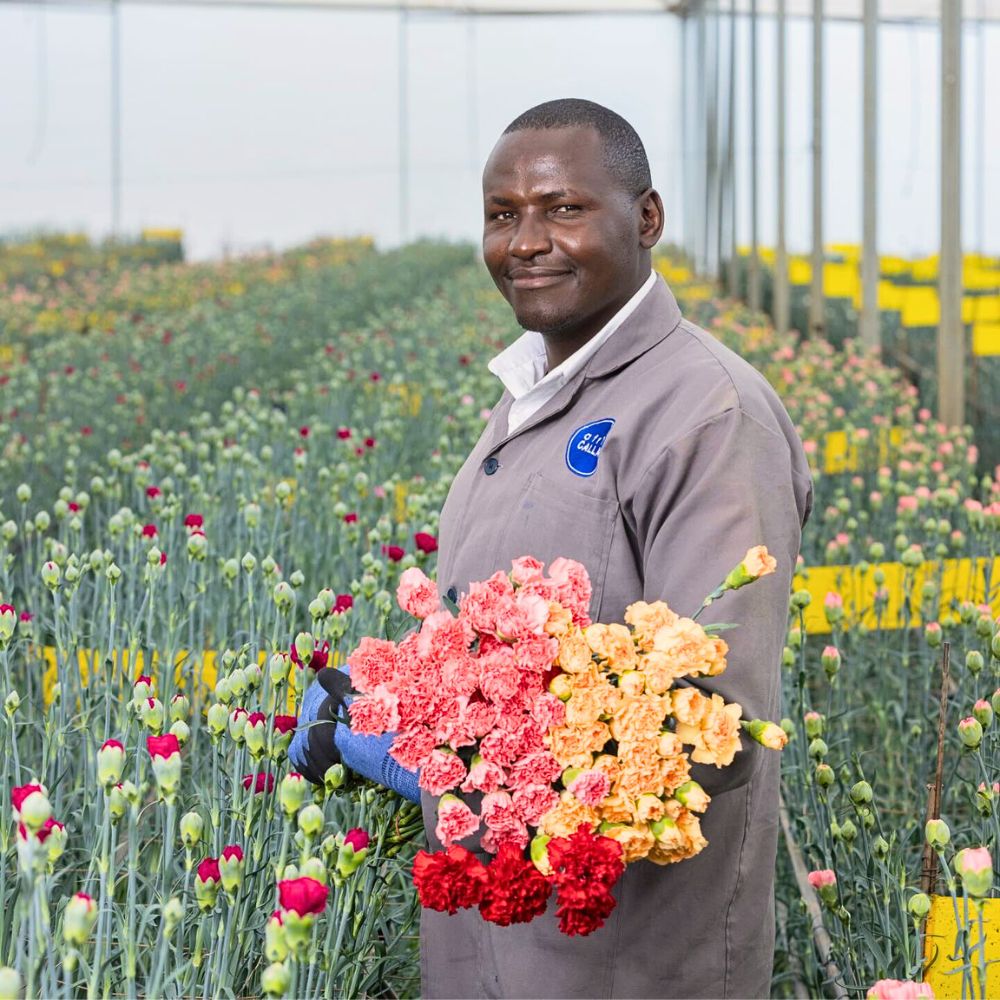
Institutional Frameworks and Certifications as Catalysts for Employee Welfare
Certification bodies and industry initiatives are essential in transforming labor practices. One of the most influential is Fairtrade, which has redefined social equity in floriculture. Fairtrade’s standards dictate living wages, prohibit child and forced labor, and require safe working environments, including proper training on pesticide handling and ergonomic practices. Certified farms must also invest in community projects, such as building schools and healthcare clinics.
In Ethiopia, for example, Fairtrade-certified flower farms have established health facilities and educational programs for workers’ families. Such is the case in various other countries that produce flowers. This illustrates how ethical practices improve entire communities. Furthermore, when consumers purchase Fairtrade-certified flowers, they support workers on flower farms by ensuring fair wages and safe working conditions. This certification is increasingly becoming important given the challenges faced by the flower industry in recent years.
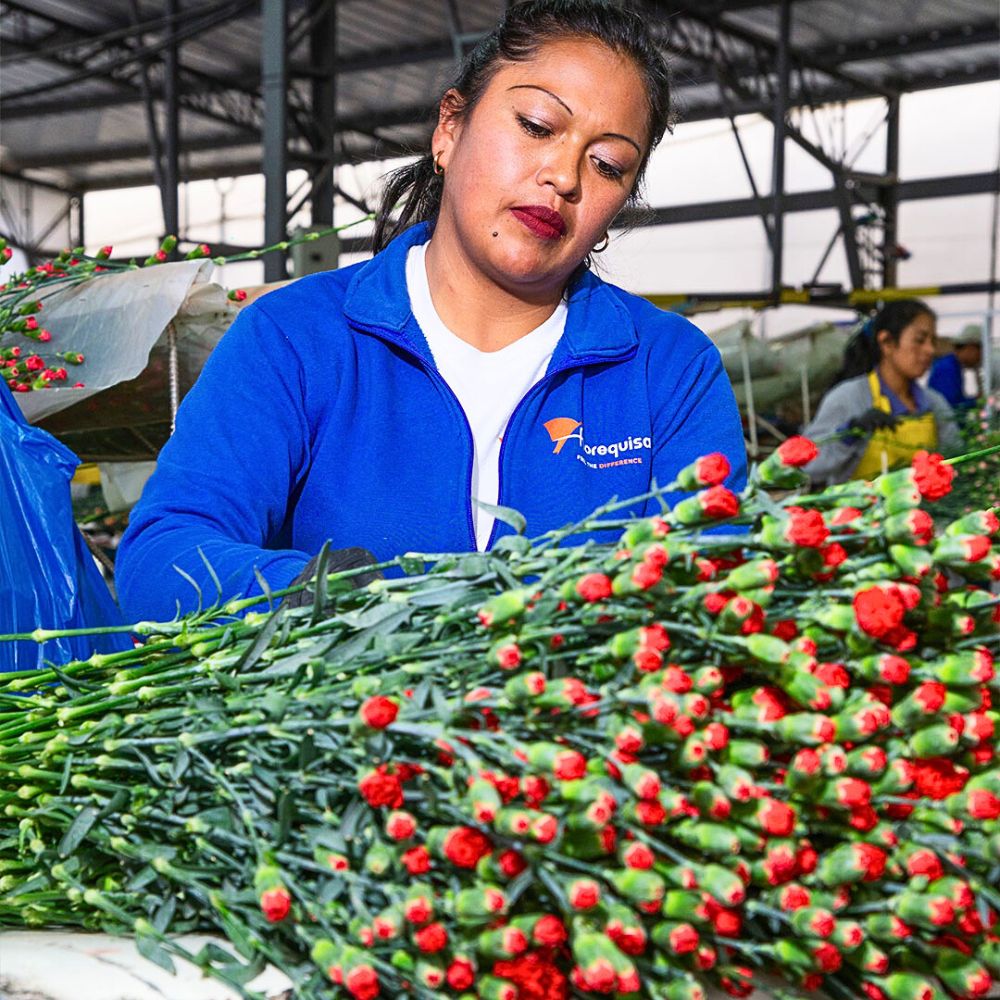
The Floriculture Sustainability Initiative (FSI) enhances these efforts through its Basket of Standards. This framework benchmarks multiple certifications—including Fairtrade, Rainforest Alliance, and Florverde—against rigorous social and environmental criteria. FSI’s goal—to ensure that 90% of flowers are sustainably sourced—has promoted transparency and accountability throughout supply chains, with a final target of 100 percent compliance. FSI collaborates with different initiatives like gender equality projects, highlighting how certifications can address systemic inequities.
GlobalGAP’s Integrated Farm Assurance (IFA) standard further enhances worker welfare by enforcing occupational safety protocols, implementing digital traceability systems, and establishing grievance mechanisms. Flower farms that adhere to IFA, as a result, report fewer workplace injuries and a rise in female leadership roles, emphasizing the connection between certification and tangible improvements.
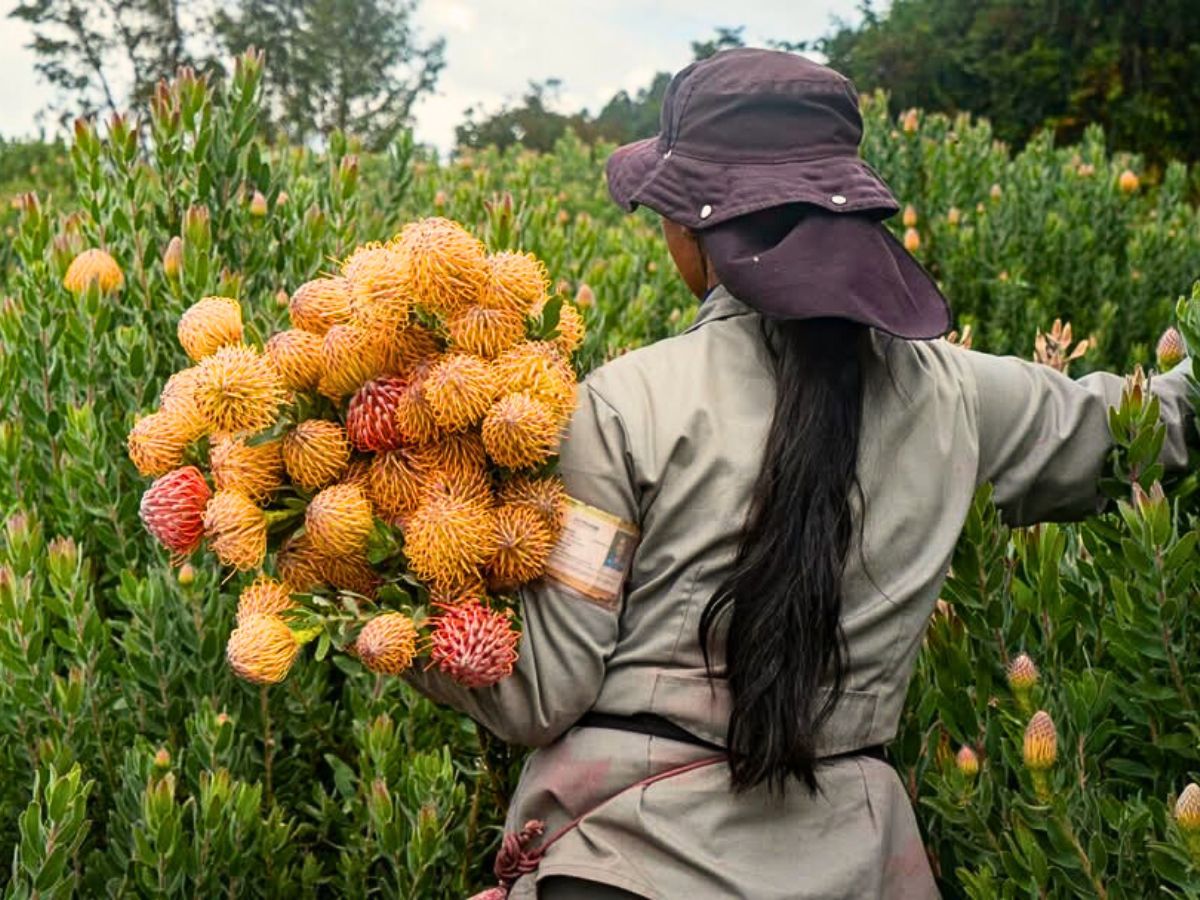
Essential Dimensions of Employee Welfare in Floriculture
Employee welfare in floriculture includes various interconnected aspects that together enhance worker well-being and promote industry sustainability.
Health and Safety Protections
The floriculture industry presents unique health and safety challenges due to the nature of the work and the use of chemicals in production. Thus, occupational health and safety measures are essential to protect workers from harmful exposure to pesticides, fertilizers, and other chemicals, as well as from the physical hazards associated with repetitive tasks and equipment operation. Reducing challenges like pesticide exposure is, therefore, crucial.
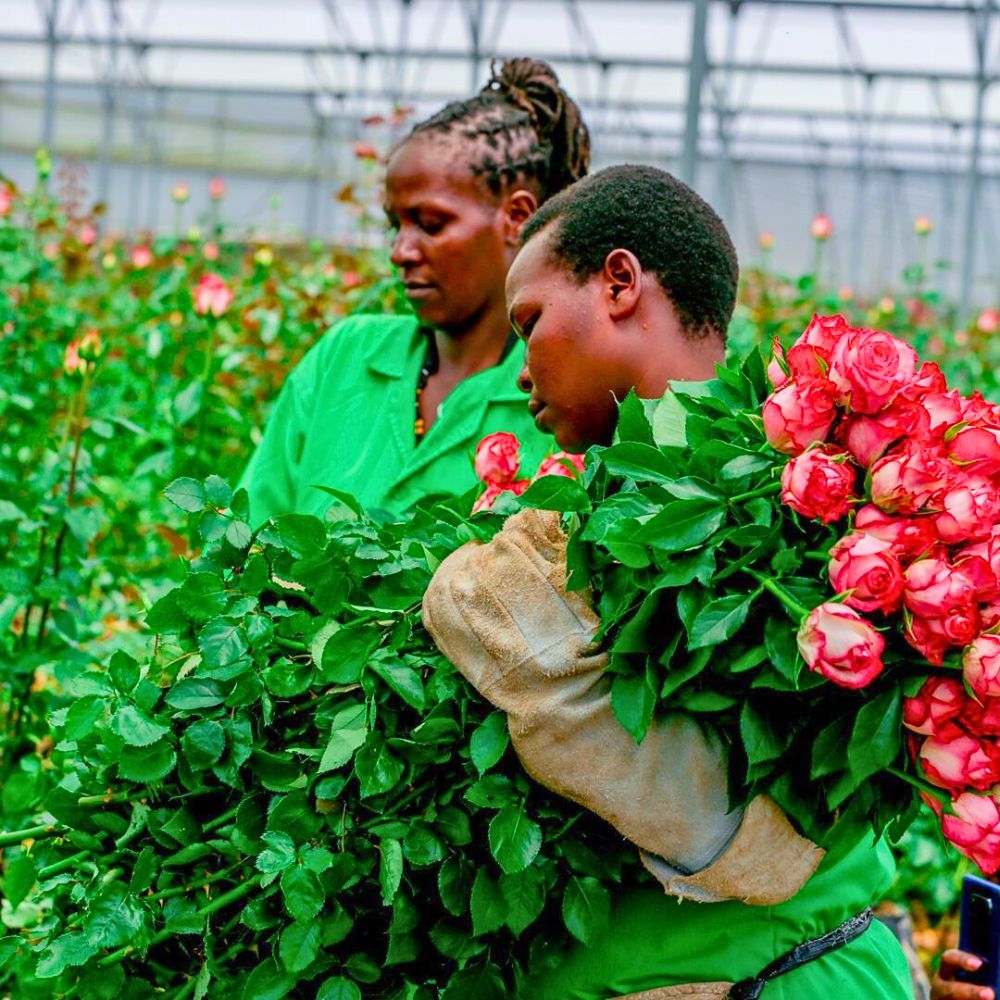
Programs such as integrated pest management (IPM), which are promoted by GAP standards, minimize chemical usage through biological controls and targeted applications. Workers also receive training on safe handling, while certifications like Florverde Sustainable Flowers (FSF) require regular health screenings. In Ecuador, for example, FSF-certified farms have significantly cut pesticide use, leading to improved worker health. Similarly, Fairtrade standards tackle these issues, especially regarding pesticide application. Their list of prohibited materials is regularly updated and strictly enforced, safeguarding workers from harmful substances.
Fair Compensation and Working Conditions
Living wages are a requirement of social sustainability. Fair wages and reasonable working hours represent fundamental aspects of employee welfare. These institutions address these concerns through the principles of fair remuneration, living wage, and decent working hours, stipulating that workers have the right to sufficient compensation to provide a decent living for themselves and their families. Fairtrade certification is keen on this aspect, ensuring that workers receive fair wages and work in improved conditions.
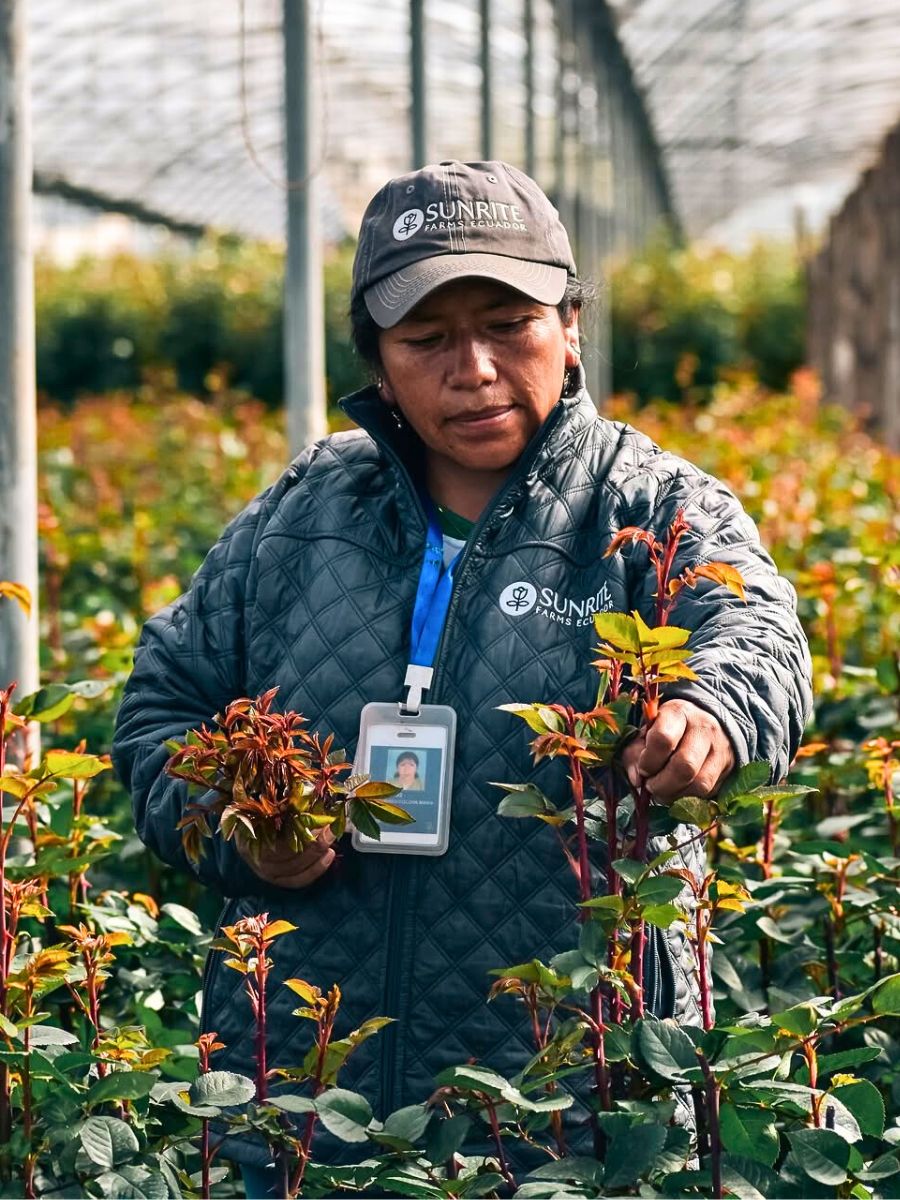
Likewise, Fairtrade’s premium system allocates extra funds to worker-controlled committees, which enable investments in housing, education, and healthcare. Such measures not only mitigate poverty but also foster loyalty and lessen labor shortages, a persistent issue in seasonal flower production. Essentially, when consumers choose Fairtrade flowers, they know that they support a system that prioritizes fair compensation and reasonable working hours, helping flower farm workers build stronger and more resilient farms and communities. In Kenya, the Kenya Flower Council (KFC) certification also requires its members to pay fair wages and provide gratuities linked to productivity.
Education and Professional Development
Knowledge is a catalyst for change. Continued education and professional development opportunities benefit employees by enhancing their skills and career prospects while also contributing to business success through increased productivity and innovation. Sustainabloom's Employee Continued Education and Professional Development Guide highlights the importance of investing in employee growth through educational opportunities, including industry-specific training programs. Conversely, others like FSF and Fairtrade certifications necessitate ongoing worker education. In South America, FSF-certified farms offer learning programs and vocational training, enabling workers to expand their skills and improve their livelihoods.
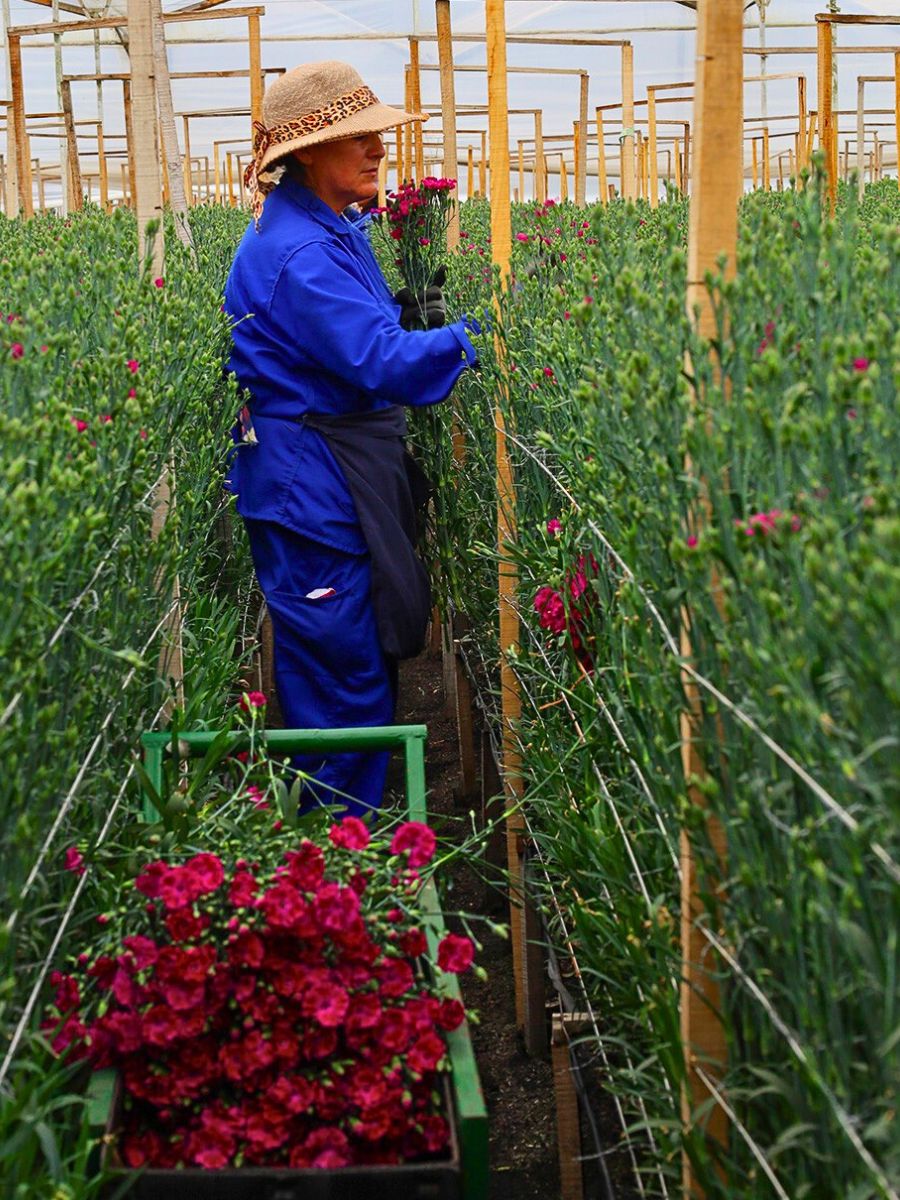
Diversity, Gender Equity, and Inclusion
Women constitute a significant portion of the floriculture workforce but often face barriers to advancement. Certifications like Fairtrade and IFA mandate gender equity programs, promoting female leadership and addressing workplace harassment. Such certifications in countries like Kenya have integrated gender training into sustainability projects, empowering women to take on supervisory roles.
Creating DEI workplaces is increasingly recognized as essential for both ethical and business reasons, and Sustainabloom's ‘Diversity, Equity, and Inclusion’ Guide provides actionable strategies for employers to create more welcoming and supportive work environments, sharing research on the importance of implementing these measures and includes case studies of successful implementation within the industry.
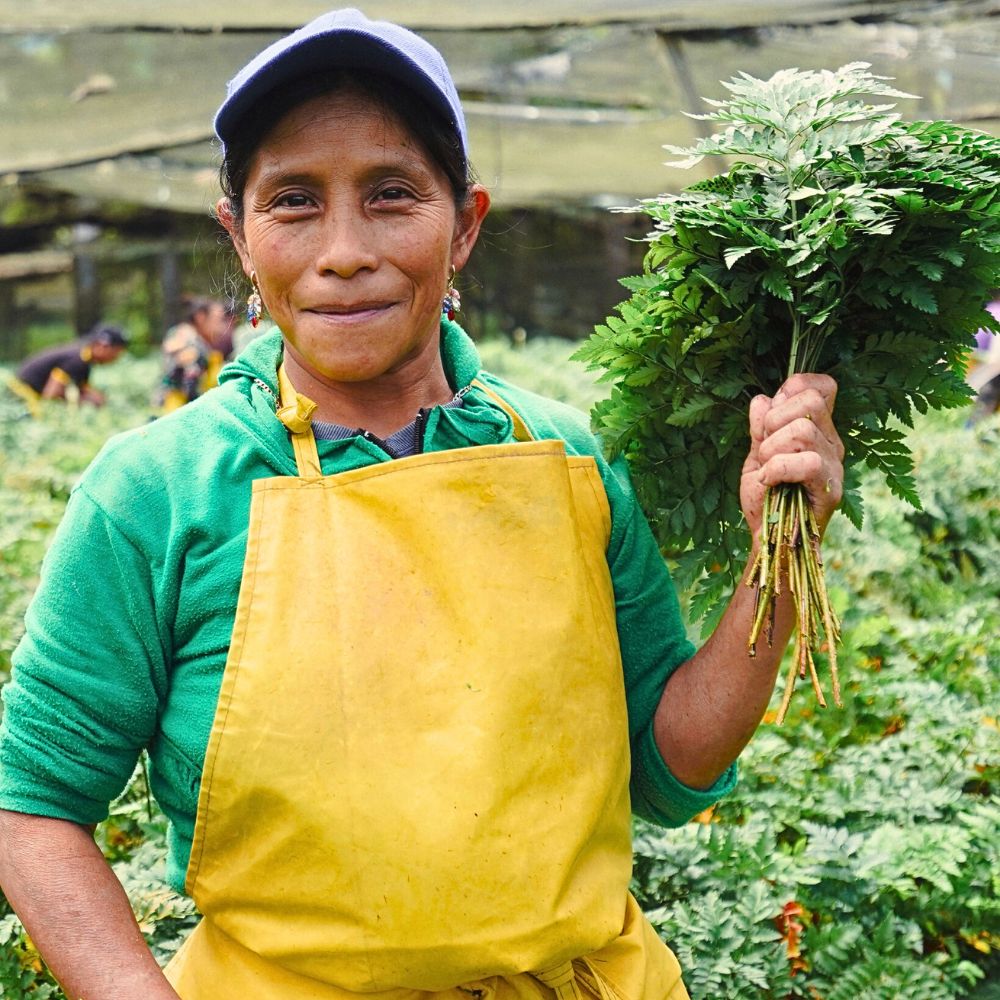
Empowering Communities
Away from the flower farm level, welfare extends to community development. Relevant institutions collaborate to provide resources that address issues, including ethical labor practices and waste reduction. Several growers, such as Tambuzi Roses in Kenya—a Carbon Neutral Gold Standard farm—power their operations with solar energy, fund local schools and health facilities, and provide resources for their neighboring communities. This shows how environmental and social goals interconnect.
Implementation Strategies for Floriculture Businesses
Implementing effective employee welfare practices requires a deliberate approach that considers the specific context of each floriculture business while observing industry standards and best practices. This can be done in different ways.
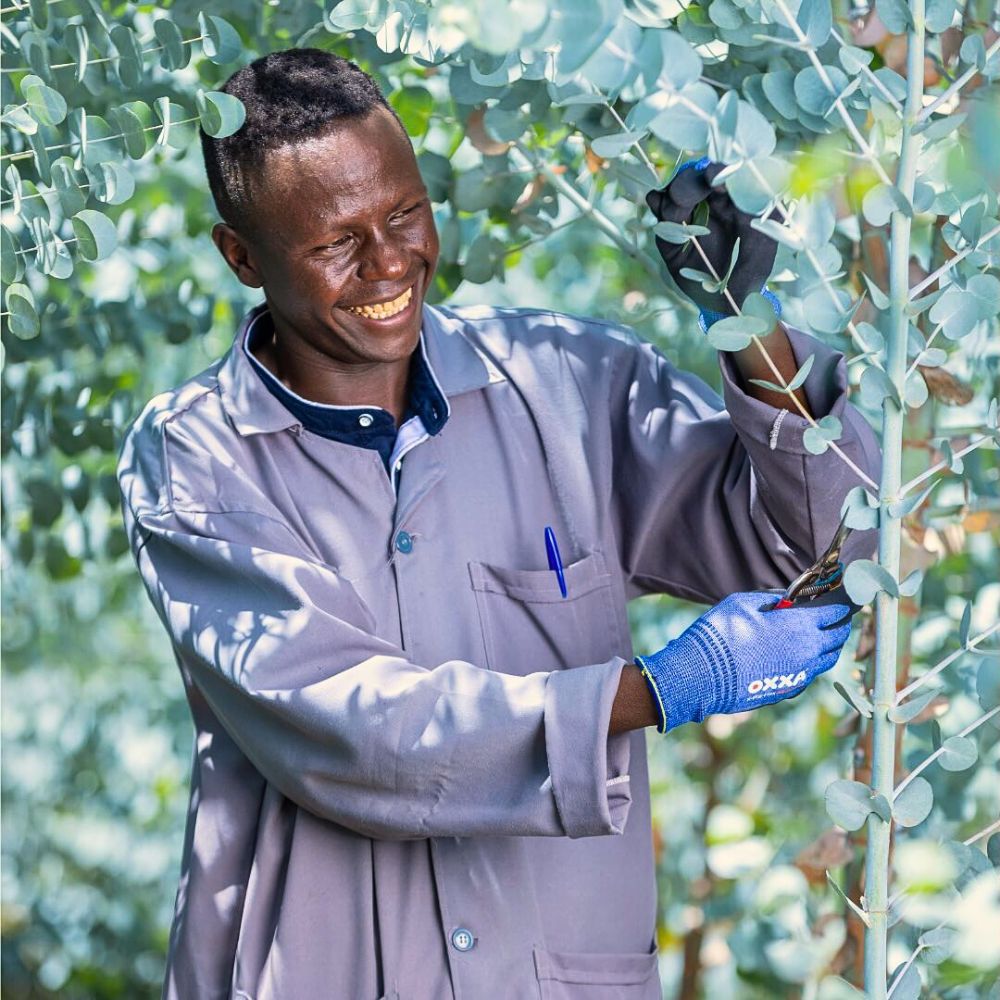
Adopting a more comprehensive approach is one strategy. Instead of addressing individual aspects of employee welfare in isolation, businesses should embrace an all-inclusive approach that acknowledges the interconnectedness of various factors affecting worker well-being. For instance, health and safety measures are more effective when employees also have access to health insurance and fair compensation.
It can also be realized by leveraging available resources. Businesses aiming to enhance employee welfare practices can use resources provided by organizations like FSI, FSF, Sustainabloom, and Fairtrade. These resources include implementation guides, case studies, and best practice examples that assist businesses in navigating the process of improving employee welfare. FSI's Basket of Standards offers a comprehensive reference for benchmarks, standards, practices, and certifications that flower businesses can use to guide their employee welfare initiatives. These resources ensure that businesses have access to the latest information and best practices.
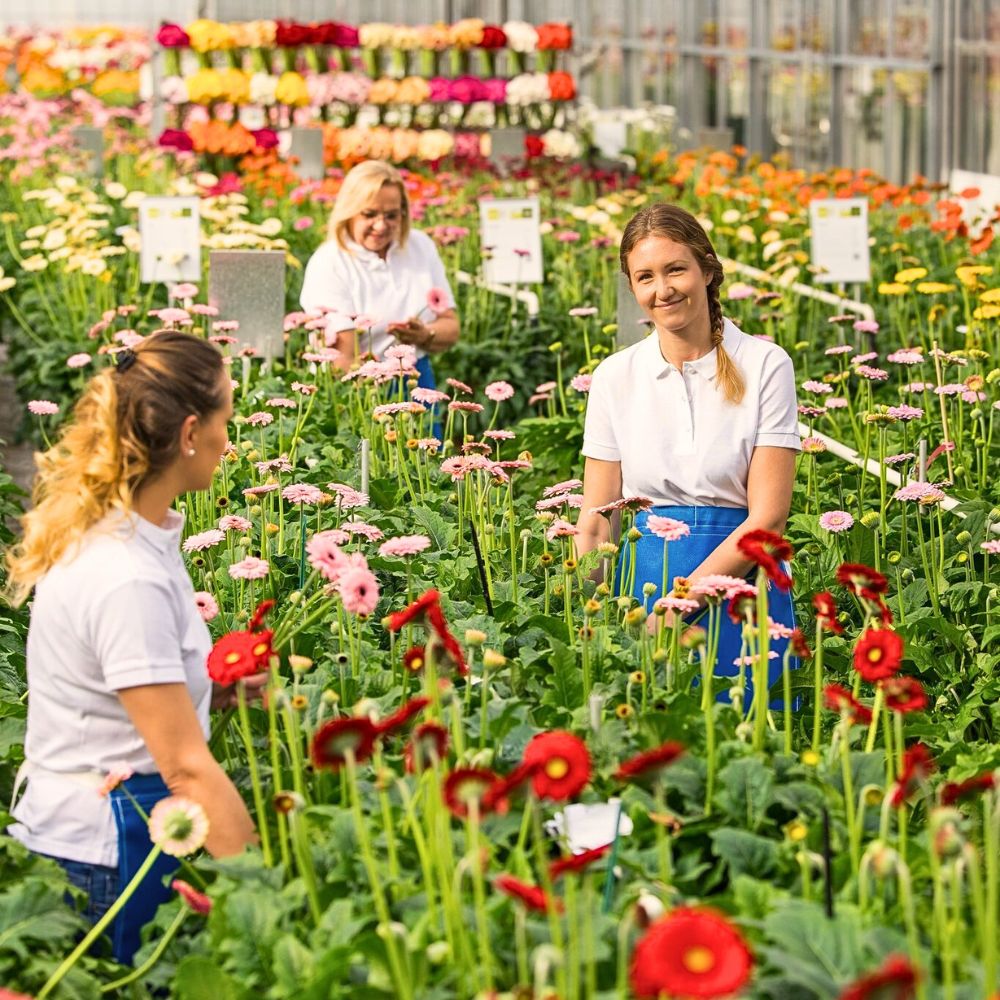
Pursuing certification through relevant organizations also provides a structured way for implementing employee welfare practices and demonstrating commitment to sustainability. Certification not only helps flower businesses adopt effective practices but also communicates their dedication to consumers and other stakeholders. When consumers see certifications like the Fairtrade mark on floral products, they can be confident that the flowers they buy support fair working conditions and sustainable practices. This market recognition can offer a competitive advantage for businesses that prioritize employee welfare.
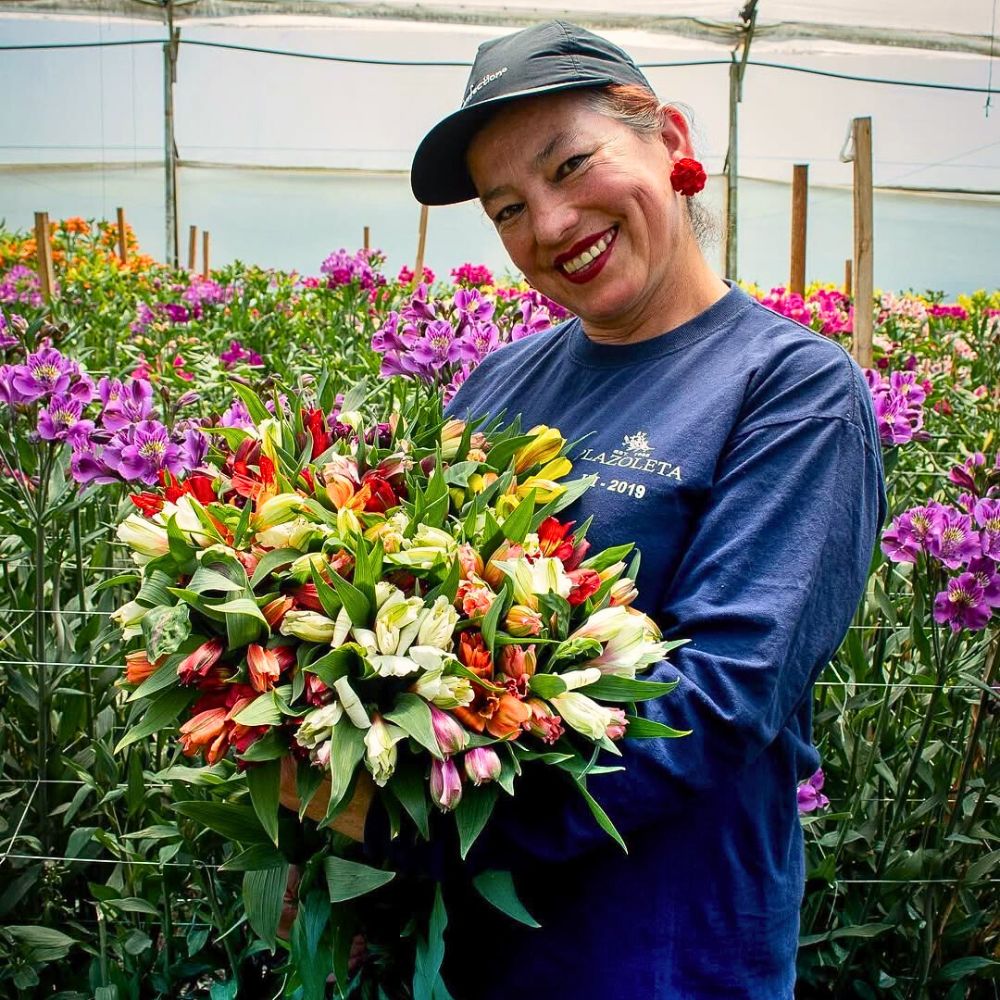
Benefits of Prioritizing Employee Welfare
Prioritizing employee welfare in floriculture yields benefits for workers, businesses, and the industry as a whole. For employees, the benefits include improved health and safety, fair compensation, opportunities for education and advancement, and a more inclusive work environment. Flower businesses benefit from increased productivity, higher quality products, reduced turnover, and enhanced reputation among consumers who are increasingly concerned with ethical sourcing. It also means reduced occupational hazards, lowered healthcare costs, and reduced absenteeism. At the same time, FSI’s emphasis on fair remuneration ensures that workers have improved household stability and community development.
Likewise, workers equipped with advanced skills contribute to higher-quality yields and efficient resource management, aligning with sustainability goals. Moreover, inclusive workplace policies strengthen team cohesion, attracting diverse talent and enhancing brand reputation among ethically conscious consumers.

At the industry level, the widespread adoption of employee welfare practices can enhance the reputation of floriculture and build consumer trust. Environmental benefits also emerge from employee welfare practices, particularly those related to health and safety. Restrictions on harmful pesticides, for example, protect not only workers but also surrounding ecosystems and communities. The synergy between worker well-being and ecological conservation creates a virtuous cycle, reinforcing climate resilience. Generally, prioritizing employee welfare offers a proven approach to sustainability—one where people and ecosystems flourish in tandem.
Feature image by @exceptionalafricalla, header image by Sian Flowers

